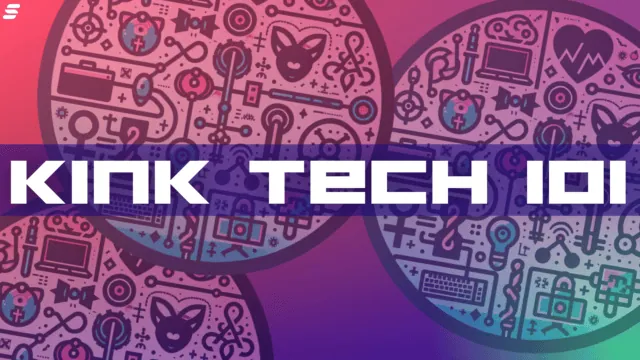When you see the letters A and I together, what comes to mind? The answer most people would come up with is artificial intelligence, the skyrocketing branch of machine-learning technology – using algorithms to learn and mimic human behaviours – that continues to make waves across sextech.
But now, AI is extending beyond mere intelligence to become emotionally competent. Never before have machines been able to be intimate, with all of intimacy’s subjective mistakes and opportunities for error, until now. This subject is explored in a new book, Artificial Intimacy: Digital Lovers, Virtual Friends and Algorithmic Matchmakers, written by evolutionary scientist Rob Brooks.
Brook’s academic work explores how evolutionary conflicts impact our sex lives and relationships, so SEXTECHGUIDE spoke to him to get his insights on the future of artificial intimacy – and what its advancements might mean for the sextech industry. For example, machines learning how to mimic intimate behaviours will clearly have a huge impact on how humans relate to each other. You only have to consider the normalization of social media in the past two decades, or the fact that, these days, it’s weird if a new couple didn’t meet on a dating app to appreciate the major — if gradual — influences technology has exerted on modern society. While sensationalist headlines will have us believing your boyfriend will dump you for a sex robot in the next five to 10 years, Brooks believes that artificial intimacy is still no clean swap for the real thing – but it’s “better than nothing”.
“There’s a distinction to be drawn between ‘good enough’ and ‘better than nothing’. I think for any of these technologies — therapy bots, social robots, digital lovers — there’s a good case to be made that they aren’t good enough. That is to say, given a choice between a living human and a machine, most people would choose the human every time. But often there is no human option, and some technologies present the next-best thing. In so doing they can alleviate loneliness, unrequited desire, and perhaps even some forms of mental anguish or distress,” Brooks tells SEXTECHGUIDE.
1. Algorithm-led match culture will go beyond product-pushing to include friend-making
In the book, Brooks differentiates between three main components of intimate technology —virtual friends, digital lovers and algorithmic matchmakers — to better analyze how these branches of technology work together. Classifying the wide world of sextech with a scientific approach can be an interesting way to explore the subject, especially the points where the categories overlap.
“I was looking to make sense of the diverse ways in which technology, especially AI, is impacting our social and sexual lives,” he says. I’m a zoologist by training, and when we want to make sense of diversity, we often turn to taxonomy. I could see that we are already being matched – with each other, with media, with products and advertising – by algorithms. From there, I could see that machines look likely to tap into our friend-making abilities and our sexual desires.”
2. Unlimited mate choice is speeding up evolution
As a professor of Evolution at the University of New South Wales, and having previously authored Sex, Genes, & Rock ’n’ Roll: How Evolution Has Shaped the Modern World, Brooks brings an historian’s perspective to a commentary on the development of sex and intimate technology.
“I think AI has created some social opportunities that never existed before, but may be extensions of pre-AI trends. Dating algorithms that let you swipe left or right on thousands of possible matches allow a degree of mate choice that was not really possible for most people throughout history. It looks like it might be creating massive sexual inequality – between those who present well on dating apps and those who don’t.”
3. Virtual friendships don’t mean the end of toxic relationships
Just as dating apps aren’t a utopian space away from the gritty realities of IRL dating, virtual friendships don’t look to be all good news either. Brooks says: “The most threatening possibilities that I envision are ‘virtual friends’ that learn to keep us coming back to interacting with them, perhaps so they can serve up ads, but that learn they can do this effectively by making users feel bad.
“Think of all the time you’ve wasted in conflict-riddled relationships, or how abusive people keep their victims on a string. There’s no reason to believe that artificially intimate technologies won’t do that.”
4. Deepfakes and catfishing could come together to create something really ugly
“Another threatening possibility, perhaps even further in the future, is what I call the ‘deepfake catfish’,” Brooks continues. “Basically, this deploys the techniques that romance scammers and other catfishers have honed since before the time of the internet, but adds deep machine learning to tailor and improve the scam. This can include targeting marked particular vulnerabilities, creating new conversations and even entirely new and fictitious personalities.
“If scammers use deepfake technologies to create new photographs, video and even audio, they can’t be detected by methods like image search. I’m seriously concerned that this is where the scammers will head next.”
5. Digital safe spaces will continue to allow for more expression
However, good things will come out of the normalisation of intimate tech. The popularity of online dating indicates that some aspects provide a viable way for meeting new people (and – from an evolutionary angle – even bringing new people into the world).
Brooks comments: “There are downsides, sure, but also millions of very happy customers.
“The trend that started with the internet, of making safe spaces for people to express a greater variety of sexualities, relationship styles, preferences, and identities is something that artificially intimate technology could really help extend. Imagine if everybody had a safe place to explore who they are and what they like, and to find playmates with whom to do so either virtually or in person?”
6. Advancements in tech could be good news for sex work
On this note, artificial intimacy could make virtual sex work more diverse and safer for everyone involved – but not at least with some resistance.
Brooks says: “The internet and matching algorithms make sex work a whole lot safer for workers and customers. I spend quite a bit of time in my book considering this. However, just as the possibility of sophisticated digital lovers such as sex robots and VR sex avatars displeases a large number of people, there’s also likely to be [controversy] surrounding this in the near future.
“So, while artificial intimacy is becoming part of our social world, and is going to improve a lot of things, it could also cause us all kinds of pain.”
Artificial Intimacy: Virtual Friends, Digital Lovers and Algorithmic Matchmakers by Rob Brooks is out now in Australia and New Zealand via Columbia University Press. It is available now for pre-order in the US and Europe, with release set for September 2021.
Read Next: RealDoll made an ‘elderly male’ sex robot, but it’s missing something crucial






Leave a Reply